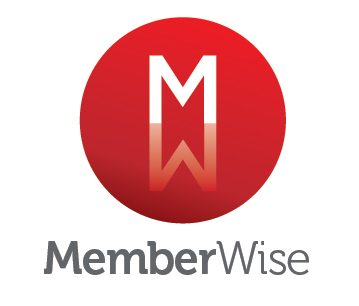A Safe Pair of Membership Hands. Why Has This Become Such a Challenge?
How many times have you heard this comment/question over the past couple of months? Far too many times I hear you cry! In this blog article we try to answer the question.
The first point to make is that this challenge is not just faced by membership organisations and associations. It goes much wider (with sector suppliers are also finding it difficult to recruit talent) and deeper (due to Brexit and inflation related challenges).
In a Post-COVID era the recruitment landscape has changed dramatically. Although membership organisations and associations are providing more flexibility for employees we believe there are two key issues at play:
1) Traditional Membership and Association Professional roles have been ‘Teched or Skilled Up’
2) The total number of traditional Membership/Administration roles has gone down
Let’s consider two widespread examples of how the above is becoming a reality for many organisations:
Example 1 – A traditional Association Event Manager may previously have had one big face-to-face conference to organize each year along with a series of 12 monthly face-to-face seminars. Following the pandemic the number of monthly face-to-face seminars may have been reduced or replaced by a series of online seminars/webinars. The delivery skill set (and potentially the number of staff) required has therefore changed in order to successfully deliver this evolved program of work.
Example 2 – Half of all membership organisations are replacing their CRM/AMS Systems based on new/emerging online self-service/engagement needs. Once in place these systems provide enhanced automation and require less background manual administration. The skill set required to implement and manage these new/emerging technologies requires those of a technical specialist and the need for multiple background administration staff/managers has reduced.
Network Chair, Richard Gott, commented:
“If automation is implemented effectively (via websites, association management systems and learning management systems) this should increase the capacity of the membership function/department by up to 35%. Equally should a membership body wish to reduce headcount the reality could be a reduction in staff required by around a third.”
New and existing staff who have the appropriate and emerging skill sets are likely to be rewarded more generously than more generic/historic membership administration roles. E.g. We are seeing new job titles including Online Member Communities Manager, Online Automation Services Manager and Learning Management System Manager roles starting to be recruited for.
It is also helpful to look at macro sector trends in tandem with observations made at a micro level above.
The Influence 100 Financial Benchmarking Report (2022/23) is the only source of solid information on this topic as it analyses the annual accounts of the largest 100 membership organisations in the UK.
Staffing represents 44% of the of the total costs of these organisations and this percentage has increased from 41% last year. This may be because of the up/re-skilled roles now being recruited to, although an element may relate to reorganisation and redundancies. I.e. membership organisations and associations are paying higher annual salaries (note: inflationary pressures are also likely to play a role).
However, a different picture evolves when you consider the average number of staff employed. Staff numbers themselves have decreased from nearly 43,000 by 1,825 to just over 41,000. Hence, although costs are increased there is a 4% fall in staff numbers themselves. The prior year also shown an increase in staff costs of £26M which represented 0.5% of the total costs; versus a decrease in staff numbers of 3,116, again another 7%. Hence for two years running staff costs have increased whilst overall staff numbers have decreased.
So, this could evidence/explain the reduction in the total number of non-technical membership related roles currently being recruited to.
Report Author, Helena Wilkinson, Partner at Price Bailey LLP responds:
“If you track the average salary it rises from £41.5K to £45K last year to now nearly £47.5K this year which is in a period of low inflation and before the current spike inflation started. As noted, redundancies may be part of the reason for some of this increase but the majority is being driven by pay increases. Organisations are now facing dealing with the cost of living crisis.”
The MemberWise Nework has experienced a significant increase in the number of membership organisations and associations looking to recruit to Manager/Head of roles. The number of adverts has almost quadrupled in less than 2 years. Demand is so high that we have set up a Search and Selection Service (via MemberWise Jobs) to help organisations find the right people with the right skill sets. We have successfully placed high quality candidates in a period of strenuous demand.
What can membership organisations and associations do to find their next Safe Pair of Membership Hands? We list our top 5 tips below:
1) Make sure your remuneration and flexible working practices are aligned to expectations and the skillset/competency area you are looking to have covered.
2) If you underpay for roles you are likely to be searching for the right person far longer and may not achieve the level of competence/experience you are looking within a much smaller talent pool.
3) Make sure you are aware of what similar organisations are paying/doing to recruit good people who ‘get membership’. E.g. Analyse the remuneration of roles advertised on the MemberWise Jobs Board and/or utilise our Talent Identification and Search Service. Find out more…
4) Ensure your systems and processes align with industry standard skill and competency sets. E.g. If you use Microsoft Dynamics CRM or Salesforce it is likely to be easier to recruit someone with an understanding of the system (compared to using a bespoke system that will require training to understand/operate).
5) Ensure your organisation has a solid reputation as being a great employer. This may require some investment in terms of updating/bolstering staff benefit packages.









Leave A Comment